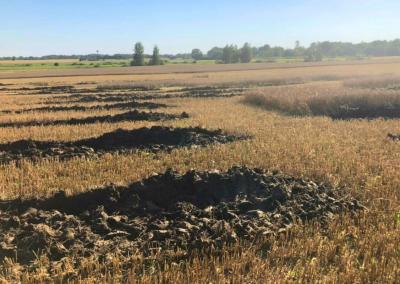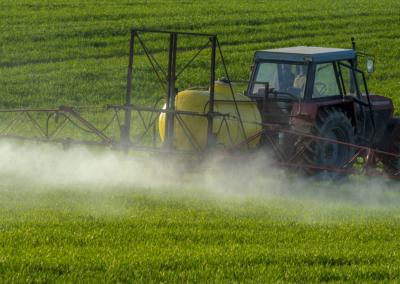Will the bulldozer of tax changes pass through all Lithuanian farms?
The Ministry of Finance, which has been considering tax changes for some time, has presented amendments not only to the Real Estate Tax (RE) but also to the Personal Income Tax (PIT). The proposed changes are not encouraging. The tax changes seem to go through like a bulldozer and this is very worrying," says Audrius Vanagas, head of the Lithuanian Grain Growers Association (LGAA).
Neck on the neck of promising farms
„We do not agree with the current changes. We cannot take it so casually and raise taxes unreasonably“, – says the head of the LGAA A. Vanag.
It is disappointing that the talks initiated by the farmers in Parliament with MPs and political groups have not produced any results. No comments were taken into account.
„We are seeing significant changes, high taxation, especially for promising medium-sized, family farms“, – notes Vanagas.
LGAA's head estimates that for them the increase in the tax differential would be around 33%. „This is a disproportionate, drastic increase“, – believes Vanag.
LGAA's leader also stresses that the farming community is not hostile to tax increases, especially if they contribute to the country's defence budget.
„However, we can see that the Ministry of Finance has a very selective approach to taxes. That is, it looks at the GPM only through its own prism and does not see the taxes of the State Social Insurance Fund („Sodra“), which also fall on the shoulders of farmers," says Vanagas.
Only individual taxes are being assessed, not their totality
LGAA's Vanagas is echoed by Martynas Puidokas, Vice-Chairman of the Lithuanian Farmers' Union (LŪS).
„The fundamental nuance is that individual elements are being assessed, for example, the GPM. But there is not a comprehensive assessment of the entire tax structure for farmers," Puidokas said, referring to the tax changes. – We want complexity. If we are talking about the GPM, we also want to talk about the "Sodra" taxes.
The increase in GPM and Sodra taxes will create a big tax hump for farmers, according to Vanagas.
„Currently, Sodra taxes are paid at 90% of taxable income, farmers propose to reduce this to 50% and extend the ceiling. This would reduce the overall tax burden and remove the so-called tax "hump" that weighs down medium-sized and family farms," said Mr Vanagas.
„In general, we think that taxes could be paid on the minimum wage. Then there would be no questions about health insurance, seniority and other nuances that „Sodra“ appreciates. This would also reduce the tax burden“, – Vanagas goes on to list the proposals.
Changing the economic status
There are proposals for farmers to change their operational status, for example to reorganise their farms into limited liability companies. However, according to M. Puidokas, Vice-Chairman of LŪS, changing the legal status is not practically possible in most cases.
„Farmers are beholden to many people, from banks to the National Paying Agency. Call the bank and ask them if they would suddenly allow all the liabilities to be transferred to UAB‘ams“, – notes the LŪS Vice-Chairman.
„Even if an automatic solution were to be devised that would turn all farmers into legal entities, other problems would arise“, – believes M. Puidokas.
For example, many farmers are of retirement age and have already paid a lot of taxes to "Sodra" during their lifetime. If they became legal persons, they would be forced to work for themselves and pay taxes again, which would not be fair.
The Vice-President of the FFA points out that farmers' work is unique and it is not fair to compare them with the work of lawyers, notaries or people with employment contracts. Therefore, taxes should be calculated differently.
„We would like to initiate a change that would create a separate economic status – economic activity, i.e. a farm. This would not be completely new in Europe, there are examples. But, of course, you cannot blindly copy everything from other countries, because tax systems are different," Puidokas said.
But at the moment, according to both speakers, the government has simply forgotten to comprehensively assess the tax system and the proposed changes.















































































































